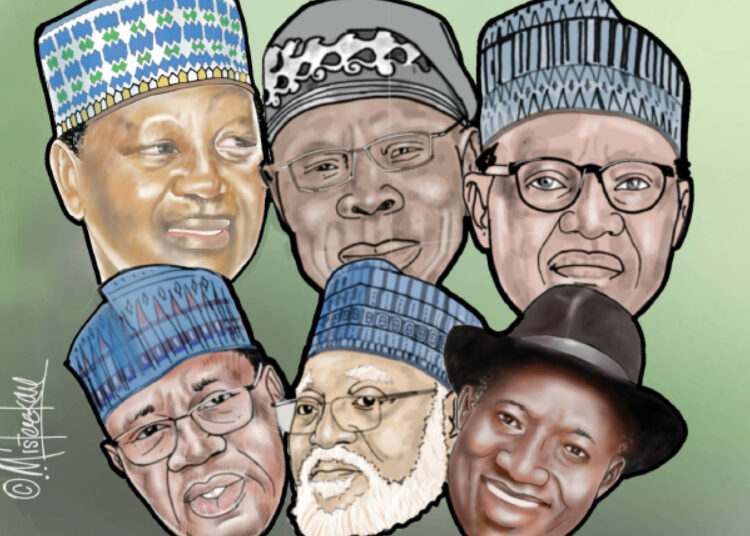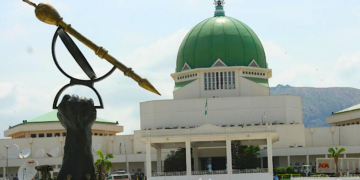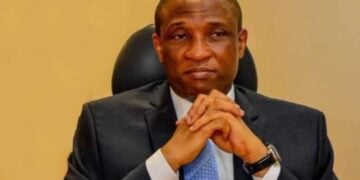Gowon: In Pursuit Of National Cohesion/Public Health
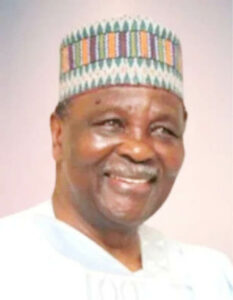 Gen. Yakubu Gowon, who served as Nigeria’s military head of state from 1966 to 1975, has dedicated his post-retirement life to pursuing national cohesion, peacebuilding, and combating neglected tropical diseases across Nigeria and Africa.
Gen. Yakubu Gowon, who served as Nigeria’s military head of state from 1966 to 1975, has dedicated his post-retirement life to pursuing national cohesion, peacebuilding, and combating neglected tropical diseases across Nigeria and Africa.
Born on October 19, 1934, and overthrown on July 29, 1975, while attending an Organisation of African Unity (OAU) summit in Kampala, Uganda, Gowon went into exile in the United Kingdom (UK) and obtained a PhD in political science.
Born in Kanke, Plateau State, Gowon has remained actively involved in non-governmental efforts to eliminate diseases such as guinea worm, HIV, malaria, and viral hepatitis. His global recognition began in 1998 when former United States (US) President Jimmy Carter invited him to join the Carter Centre’s campaign to eradicate Guinea worm disease from Nigeria and the African continent.
He established the Yakubu Gowon Centre, which initially focused on peace and conflict resolution, and later expanded its mission to include health initiatives targeting HIV, malaria, and viral hepatitis eradication.
The centre currently partners with the North East Development Commission (NEDC) to combat viral hepatitis in Nigeria’s northeastern states of Adamawa, Bauchi, Gombe, Borno, Taraba, and Yobe.
Gowon remains active in peacebuilding efforts, organising prayer sessions for Nigeria and promoting unity, as evidenced by his participation as special guest of honour at the Plateau Interdenominational Unity Christmas Carol and Praise Festival in 2023. At the event, he emphasised the importance of prayer, harmony, and reconciliation among Nigeria’s diverse religious and ethnic groups.
In 2016, he was honoured as the National Goodwill Ambassador for eradicating viral hepatitis in Nigeria.
Speaking on Gowon’s leadership, the country representative of the Carter Centre in Nigeria, Dr. Emmanuel Miri, highlighted the former leader’s critical role in eliminating guinea worm in Nigeria. At the height of the epidemic, Nigeria had over 650,000 cases – the highest globally among 20 infected countries. Gowon’s involvement was pivotal in Nigeria receiving certification from the World Health Organisation (WHO), declaring guinea worm eliminated.
Dr. Miri lauded Gowon’s humility and dedication, recounting how he trekked difficult terrains to reach rural communities, educating women and children on disease prevention – qualities unmatched by many Nigerian leaders past or present.
Beyond the anti-guinea worm war, Gowon led efforts in controlling malaria and other neglected tropical diseases such as river blindness and lymphatic filariasis in Plateau and Nasarawa States, earning his centre recognition as a principal recipient of funding from the Global Fund.
One of his aides revealed that Gowon’s famous remark, “What I did not achieve through the barrel of a gun, I will achieve through prayer,” exemplifies his commitment to peace and national healing.
Gen. Yakubu Gowon’s post-retirement legacy is one of servant leadership – dedicated to healing Nigeria through health, unity, and faith-driven initiatives that continue to inspire present and future generations.
Obasanjo: Strong In Business, Education And Leadership Development
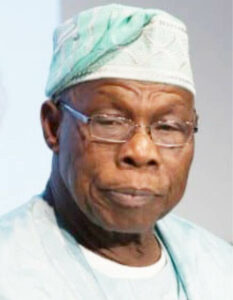 Former President Olusegun Matthew Okikiola Ogunboye Aremu Obasanjo is a former Army General and statesman who served as Nigeria’s head of state from 1976 to 1979 and later as its president from 1999 to 2007.
Former President Olusegun Matthew Okikiola Ogunboye Aremu Obasanjo is a former Army General and statesman who served as Nigeria’s head of state from 1976 to 1979 and later as its president from 1999 to 2007.
Since leaving office in May 2007, Obasanjo has led a vibrant post-presidency life marked by business investments, global advocacy, and a deep commitment to leadership and education.
Obasanjo has become a prominent international figure, frequently travelling across continents to speak on peace, democracy, and the economic future of Africa. In recent years, he has expanded his influence beyond Nigeria by investing significantly in countries like Cameroon and the Republic of Benin – focusing on sectors such as hospitality, energy, and agriculture.
Through Obasanjo Holdings Limited (OHL), headquartered at Agbeloba House, Quarry Road, Abeokuta, Ogun State, he operates one of the largest cotton factories in the Republic of Benin. In Cameroon, he runs Agro-Allied Business Ltd (OABL) with investments reportedly valued at $700 million in energy, logistics, and agriculture.
Obasanjo has also played a leading role in economic think tanks that seek to position Africa for continental investment collaboration across vital sectors such as power, agriculture, and infrastructure.
Hospitality And Presidential Library Legacy
Obasanjo is the chief promoter of the Olusegun Obasanjo Presidential Library (OOPL) in Abeokuta, a multipurpose facility that preserves his legacy and promotes leadership, governance, and African history. Within the complex is the Green Legacy Hotel, a hospitality business catering to guests and researchers alike.
He also owns fully equipped guest cottages in the Ibara Government Reservation Area (GRA) of Abeokuta, providing comfortable, self-contained lodging for visitors.
A lifelong advocate for agriculture, Obasanjo established the Ota Farm in 1976 during his tenure as military Head of State, under the “Operation Feed the Nation” initiative. Today, his agricultural ventures span several states, including Benue, Oyo, Edo, and Delta, making him a major player in Nigeria’s agribusiness sector.
Advocacy For African-Centric Democracy
At home, Obasanjo continues to be a stabilising force and vocal contributor on national issues. He has championed the idea of a uniquely African model of democracy, one that respects and integrates traditional communal values rather than wholly mirroring the Western “winner-takes-all” structure.
He argues that African societies require a governance system that reflects their culture of inclusiveness and consensus-building. His open letters to sitting presidents over the years have often sparked public debate and criticism, but they remain a testament to his unwavering commitment to national development and democratic evolution.
Though not publicly confirmed, there have been reports linking Obasanjo to the oil and gas sector. Industry sources claim a quiet business relationship with one of Africa’s richest businessmen, with the largest industrial conglomerate on the continent.
Passion For Education
Obasanjo’s commitment to education is evident in his founding of The Bells University of Technology in Ota, Ogun State. The institution was conceived to offer quality tertiary education with a focus on technology and innovation.
As part of his broader educational vision, he also launched The Bells Educational Foundation, which provides scholarships and educational grants to underprivileged students.
He is closely associated with leading figures in the academic community, including Chief Afe Babalola (SAN), founder of Afe Babalola University (ABUAD) and Professor Peter Okebukola.
Buhari: Sustaining A Legacy In Agriculture And Development
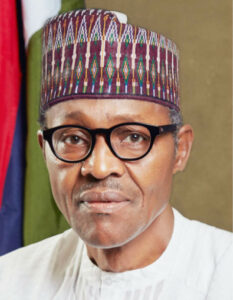 Former President Muhammadu Buhari was born on December 17, 1942. He was the president of Nigeria from 2015 to 2023. Buhari was also the military head of state of Nigeria from December 31, 1983 to August 27, 1985
Former President Muhammadu Buhari was born on December 17, 1942. He was the president of Nigeria from 2015 to 2023. Buhari was also the military head of state of Nigeria from December 31, 1983 to August 27, 1985
Since leaving office in May 2023, Buhari has embraced a quieter life, relocating from his hometown of Daura in Katsina State to Kaduna. However, despite stepping away from formal politics, Buhari’s influence remains significant, particularly in agriculture, education, energy, and environmental sustainability.
Long celebrated for his passion for farming, Buhari continues to be deeply engaged in agricultural activities. At his Daura Farm, he maintains cattle rearing operations and has expanded into milk production, supplying markets within the state. This hands-on involvement underscores his enduring belief that agriculture is a cornerstone for Nigeria’s economic growth and rural development.
Buhari’s commitment to agriculture extends beyond his personal ventures. He remains a strong supporter of initiatives launched during his presidency, including the National Agricultural Land Development Authority (NALDA) and the National Young Farmers Scheme (NYFS).
These programmes continue to operate actively, with Buhari reportedly providing informal advice to stakeholders and monitoring their progress closely.
His dedication to empowering Nigeria’s youth and strengthening the rural economy has not waned in retirement. Associates note that he often consults on matters related to agricultural policy and rural development, ensuring that his legacy projects maintain momentum.
In the energy sector, Buhari’s administration laid the groundwork for key infrastructure projects, such as the Integrated Gas Handling Facility in Edo State and the issuance of licenses for modular refineries in the Niger Delta region.
Though retired, he maintains advisory relationships with key figures driving these initiatives, reinforcing his vision for Nigeria’s energy independence and economic diversification.
Education, too, remains a priority for Buhari. During his tenure, his administration invested over N1.7 trillion in tertiary education via the Tertiary Education Trust Fund (TETFund). Reports from former aides indicate that Buhari continues to support grassroots educational initiatives in northern Nigeria, providing scholarships and vocational tools through discreet channels.
Environmental sustainability has also been an area of ongoing interest. Buhari established the National Council on Climate Change and appointed Salisu Dahiru as its director-general. He remains briefed on the council’s activities and is reportedly experimenting with eco-friendly farming techniques in northern Nigeria as part of the efforts to combat climate change.
Although Buhari holds no official role, he is widely respected as an elder statesman. Through trusted allies such as Adedoyin Salami and Segun Awolowo, he quietly influences policy discussions on agriculture, rural finance, and export development. His continued involvement in these areas reflects a desire to nurture Nigeria’s growth from behind the scenes.
In retirement, Buhari has chosen to lead by example – living simply, mentoring younger leaders, and steadfastly supporting initiatives aligned with his lifelong commitments. While no longer in office, his impact remains deeply embedded in Nigeria’s development trajectory, particularly in sectors vital to national progress.
Babangida (IBB): Shaping Politics And Leadership From Behind The Scenes
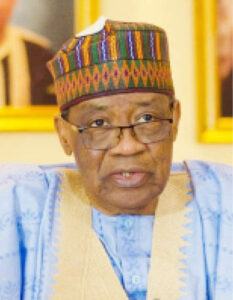 Born on August 17, 1941, Gen. Ibrahim Badamasi Babangida (IBB) ruled Nigeria as military president from 1985 and stepped aside in 1993 due to the crisis that erupted over his annulment of June 12, 1993, presidential election.
Born on August 17, 1941, Gen. Ibrahim Badamasi Babangida (IBB) ruled Nigeria as military president from 1985 and stepped aside in 1993 due to the crisis that erupted over his annulment of June 12, 1993, presidential election.
Since stepping aside as Nigeria’s military president, General Ibrahim Badamasi Babangida (IBB) has maintained a low public profile, yet his influence on politics and leadership remains substantial.
Although he is not widely known for any specific personal business ventures, Babangida’s family has long operated El-Amin Schools in Minna, offering education from the primary to university level. The family also manages a bakery business which predates his tenure as military president.
Beyond these visible enterprises, Babangida has often been linked though discreetly, to political manoeuvering and significant economic ventures shrouded in secrecy. He is widely believed to have played a pivotal role in facilitating the emergence of President Olusegun Obasanjo in 1999.
Despite announcing his retirement from active politics at age 70, he has remained a constant presence in Nigeria’s political discourse. During election seasons, his hilltop mansion in Minna becomes a pilgrimage site for key political and economic actors, many of whom visit, both publicly and privately, to seek his counsel and backing.
There are insinuations that no Nigerian President has emerged since 1999 without having consulted with Babangida in some form. His continued relevance is attributed to his broad political outreach and perceived ability to influence electoral outcomes. Though rarely offering public endorsements, sources indicate that he supports preferred candidates financially and strategically.
According to insiders, Babangida maintains a sophisticated network of political intelligence that enables him to assess electoral trends and align himself accordingly, ensuring his sustained influence in Nigerian politics.
In terms of economic involvement, while he is not openly associated with specific enterprises, his family reportedly has interests in sectors such as banking, oil, real estate, and telecommunications. These ventures, sources say, are managed discreetly through trusted associates and allies.
“He has businesses many wouldn’t recognise as his,” one insider revealed. “He conducts business through long-time loyalists and avoids direct involvement. However, his children are gradually taking a more active role, and are quite protective of his interests.”
The source further explained, “Unless there’s value being added, they won’t allow easy access to him. They know how generous he can be and are careful not to let any part of the family business be given away.”
To those close to the family, Gen. Babangida remains a quiet but powerful force, shaping both Nigeria’s political landscape and economic direction through carefully guarded channels. His influence thrives on discretion, trusted networks, and strategic silence.
Abdulsalami: Committed To Peaceful And Credible Elections
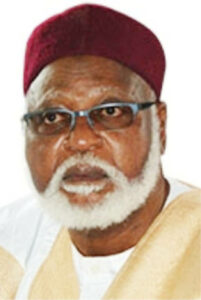 Gen Abdulsalami Abubakar was born on June 13, 1942. He was the military head of state of Nigeria from 1998 to 1999 and handed over power to former President Olusegun Obasanjo on May 29, 1999.
Gen Abdulsalami Abubakar was born on June 13, 1942. He was the military head of state of Nigeria from 1998 to 1999 and handed over power to former President Olusegun Obasanjo on May 29, 1999.
Upon leaving office, Abdulsalami ventured into agriculture by establishing Maizube Farms. Located in Minna, Niger State, the farm focuses on livestock and orchards.
However, while farming marked the beginning of his post-leadership journey, his greater commitment has been toward promoting peace, particularly electoral peace, both in Nigeria and across the African continent.
Gen. Abdulsalami has played a significant role in national and international peace mediation efforts, focusing on fostering peaceful and credible elections. In Nigeria, he currently serves as the chairman of the National Peace Committee, which facilitates the signing of peace accords during general and off-cycle elections to ensure non-violent and fair electoral processes.
His dedication has also extended beyond Nigeria. Abdulsalami has led several peace delegations to other African nations, supporting peaceful elections and advocating for sustainable democratic practices.
To institutionalise his peace-building efforts, he founded the Abdulsalami Abubakar Institute for Peace and Sustainable Development Studies in Minna. The institute conducts training, both short-term and postgraduate, for peace mediators, aligning its programmes with the current challenges facing electoral processes in Africa, particularly Nigeria.
The institute partners with various development agencies and organisations to promote good governance and electoral credibility.
According to its mission: “The Institute is dedicated to promoting good governance and democratic transitions in Nigeria and beyond. Our commitment to these vital aspects of nation-building is reflected in our research initiatives and community engagement efforts.”
Through this platform, Abdulsalami has collaborated extensively with civil society groups, government bodies, and international development partners to advance electoral peace and democratic stability.
while Maizube Farms remains a part of his post-presidency pursuits, Abdulsalami has dedicated the greater part of his retirement to building a legacy rooted in peace, democratic integrity, and good governance.
Jonathan: Active In Global Discourse And Peacebuilding
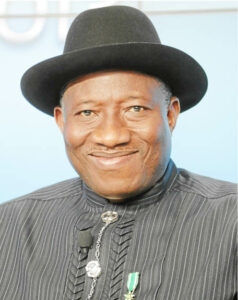 Goodluck Ebele Azikiwe Jonathan was born on November 20, 1957. He served as the president of Nigeria from 2010 to 2015 and lost the 2015 presidential election to former military head of state General Muhammadu Buhari. He became the first incumbent president in Nigerian history to concede defeat in an election.
Goodluck Ebele Azikiwe Jonathan was born on November 20, 1957. He served as the president of Nigeria from 2010 to 2015 and lost the 2015 presidential election to former military head of state General Muhammadu Buhari. He became the first incumbent president in Nigerian history to concede defeat in an election.
Jonathan served Nigeria during a period marked by serious challenges and complexities in the nation’s political history. Yet, what truly set him apart was his exemplary conduct as an incumbent – he conceded defeat even before the official announcement of the 2015 election results.
His famous declaration, “My ambition is not worth anybody’s blood,” was both poignant and powerful – a remarkable gesture of peace amid the highly charged and divisive atmosphere surrounding the election.
Jonathan’s attitude before, during, and after the 2015 election, alongside his unwavering commitment to peace even in the face of imminent defeat, distinguished him as a unique figure in Nigerian political history. Many believe Nigerian democracy might have taken a stronger and more progressive path had he secured a second term to consolidate his policies and reforms.
Globally, attention was drawn to this modest yet visionary leader, who championed a new democratic culture in Nigeria—one free from rancour and the violence often associated with political competition.
Since leaving office in 2015, Jonathan has remained a prominent figure on the international stage, dedicating his post-presidency to peacebuilding, conflict resolution, and democratic advocacy across Africa and beyond.
Jonathan’s role as a mediator in political crises has taken him to numerous countries where he works to resolve conflicts, promote democracy, and encourage peaceful transitions of power. He is regularly called upon by international organisations and regional blocs such as ECOWAS and the African Union (AU) to help facilitate dialogue in fragile democracies.
The Goodluck Jonathan Foundation (GJF)
At the heart of Jonathan’s post-presidency work is the Goodluck Jonathan Foundation (GJF), his flagship personal initiative. The foundation focuses on humanitarian support, peace advocacy, and democratic development.
A family member who spoke on condition of anonymity said, “The foundation is his main personal project. It channels his efforts toward supporting humanitarian causes, especially for vulnerable groups.”
The foundation maintains a robust network of local and international partners that support its peace and humanitarian missions. These include Open Society Initiative for West Africa (OSIWA), ECOWAS, African Union (AU), United Nations Development Programme (UNDP), German Cooperation (through ECOWAS), and the Open Society Foundation.
The source noted that Dr. Jonathan spends much of his time engaging with international peace initiatives and advancing the foundation’s charitable activities.
One of the core areas of GJF’s work is empowerment and medical assistance for the underprivileged. Rather than distributing cash handouts, the foundation provides tangible support, such as funding medical surgeries for elderly women and others who cannot afford healthcare costs.
“For instance, when elderly women need urgent surgeries but can’t afford the cost, the foundation steps in to handle the expenses. It’s all about meaningful impact, not just giving out money,” the family member explained.”
Business Interests In Energy
Beyond his humanitarian and diplomatic roles, Jonathan has developed quiet but strategic business interests in Nigeria’s energy sector, focusing primarily on gas and electricity.
He is said to own a large-scale gas processing and distribution company situated on the East-West Road. The company plays a major role in the regional gas supply chain, helping to improve energy access and fuel availability.
In addition, the former president is believed to be a major investor in the power sector, particularly in an electricity distribution company.
A family source said, “He’s a shareholder in the DisCos – possibly even the largest, although he maintains a very low profile in the business.”
He has authored books and articles sharing his experiences and insights on governance and leadership in Africa.

